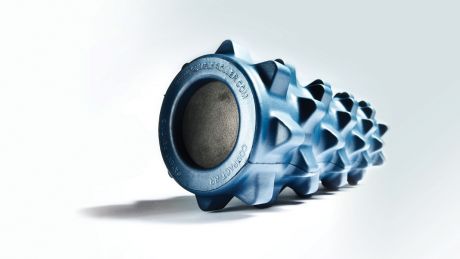The five hormones that will improve your workouts
There are dozens of hormones in your body, but just five can make all the difference to your gym results. Coach Mike Mahler explains how.

Sign up for workout ideas, training advice, reviews of the latest gear and more.
You are now subscribed
Your newsletter sign-up was successful
If you’re lifting heavy, running fast and dieting hard but ignoring your hormones, you could be undermining all your hard work. Trainer Mike Mahler – a kettlebell expert and leading authority on hormone optimisation – outlines the roles of the five hormones that are most beneficial to your body, and explains how to harness them.
Growth hormone
If your growth hormone levels are low, you’re in a rapidly ageing state. This means your skin will start sagging faster, joint health will deteriorate and workout recovery will be poor. When growth hormone levels are optimal, you’re in that metabolic furnace state where it’s easy to lose body fat, it’s much easier to recover, your joints feel great and your sleep is incredible.
One thing that will help you achieve this naturally is high-intensity training. Activities such as sprinting raise levels of lactic acid and, with it, growth hormone. Another way is to ensure you have ample protein in your diet (no less than 1g per kilo of bodyweight a day) – this provides the building blocks for growth hormone. But the most powerful time for growth hormone production is while you are sleeping at night. Get eight hours and you’ll ramp up growth hormone significantly.
Leptin
Leptin communicates with the brain to tell you when to stop eating so you avoid ‘nutrient spill-over’ which is when food is converted into stored body fat. Over-reliance on processed food results in leptin resistance.
Eliminating foods in your diet that trigger bad reactions will fix this. You can have your blood analysed to see if it has an inflammatory response to foods such as dairy, wheat or soya – or simply cut out common problematic food and see how you feel. Load up on greens (cucumber, celery, spinach) for their alkaline properties. And take a quality digestive enzyme: one or two capsules before each meal.
Sign up for workout ideas, training advice, reviews of the latest gear and more.
Insulin
The twin brother of leptin. Every time you eat, insulin – which lowers blood sugar levels – goes up and glucagon (which counters insulin by raising blood sugar) goes down. Leaving longer between each meal will reverse that and stabilise your blood sugar. If you’re constantly producing too much insulin, you will be in that nutrient spill-over stage constantly.
The more often you eat, the more reliant you become on eating, to the extent that if you miss a meal, your blood sugars become low and you get blurred vision and tiredness. Eating three meals a day, with long stretches between meals, is ideal. Four hours between meals is perfectly fine for those who train, and will help you learn to let genuine hunger dictate when you eat.
Melatonin
The sleep hormone. If you have optimal levels of melatonin, at night you’ll start yawning and going into sleep state – and this will help increase growth hormone. If you don’t, taking a melatonin spray or pill is a short-term solution but you don’t want to take it every day because, as with any hormone, taking too much has a detrimental effect on natural production. You want to induce natural production of melatonin: having optimal levels of magnesium helps with this and meditation is also worth trying.
Adrenaline
We have adrenaline receptors in ‘stubborn fat’ areas, such as the belly and hips. The more stress you put yourself under – from poor diet and poor sleep, which the brain treats as a famine-type stress – the more fat or calories you will store in the stubborn fat areas, because it’s easy for the receptors to pull energy from those areas.
The number one way of counteracting stress is through eradication of any toxic relationships in your life. If you can’t do that, use restoration techniques, such as going to a steam room, going for massages or using a foam roller. All that will keep your adrenaline sensitivity high, so you’re not overloaded with it and the stubborn fat areas aren’t so fat.
Summary
Training is the easy part of getting in shape. The hard part is the restoration – foam rolling, meditation and the other techniques I’ve mentioned here – but without it our hormone levels would be all over the place and we’d be breaking ourselves down all the time. The older you become, the more hormone sensitivity matters, and the more you have to call on restoration techniques – but it’s advisable to get into good habits before problems start to occur.
To get training advice and high-quality supplements touch here.
Nick Hutchings worked for Men’s Fitness UK, which predated, and then shared a website with, Coach. Nick worked as digital editor from 2008 to 2011, head of content until 2014, and finally editor-in-chief until 2015.
